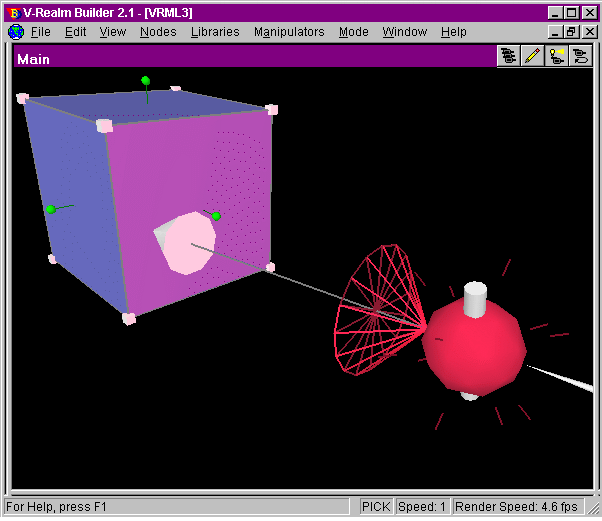![[Previous]](prev.gif)
![[Home]](home.gif)
![[Next]](next.gif)
Lighting for 3D Worlds

VRML also also permits substantial control over lighting in the form of:
- Point lights where the light emanates from a single point that speads out.
- Spotlights which produce a cone of light in a specific direction
- Directional lights in the form of parallel rays that come from a certain direction.
Here
is an example of these controls for a spotlight
where I have inserted a light manipulator that looks like a red ball with a
white cylinder thru it. You see a large arrow which shows the direction
of the light and a red mesh cone that shows the spread of the light.
You can manipulate the light in many ways: click on the red ball and
you can move the light source in 3D; click on the mesh cone and you can
make it narrow or broad; click on the arrow (front or back) and you can
swivel it in any direction.

Non-VRML 3D systems allow some additional controls, such as "gels" (textures associated with lights), and softer edges.
![[Previous]](prev.gif)
![[Home]](home.gif)
![[Next]](next.gif)